
MHSRS session focuses on war-sparked innovation
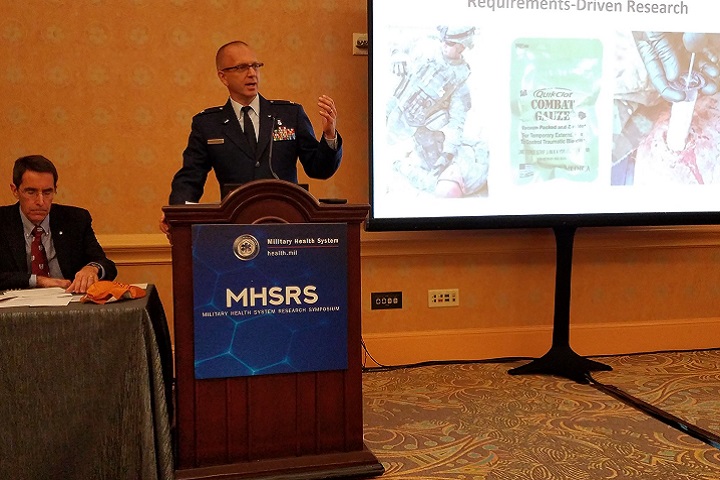
Air Force Col. Todd Rasmussen said battlefield research was uniquely requirements-driven, lifecycle by nature, and designed to deliver specific products. (Courtesy photo by USU)
KISSIMMEE, Fla. — During the first decade of the wars in Iraq and Afghanistan, the Military Health System “put more than 27 major game-changing innovations online,” said Dr. Arthur Kellerman, dean of the F. Edward Hebert School of Medicine at Uniformed Services University of the Health Sciences in Bethesda, Maryland. “It’s one of the most extraordinary stories in the history of American medicine.”
Kellerman was moderator of “Out of the Crucible: Lessons from the Transformation of Casualty Care in Iraq and Afghanistan, and a Reset for the Future of Military Medicine.” The session was part of the Military Health System Research Symposium, which runs through Aug. 23 at the Gaylord Palms Resort and Convention Center in Kissimmee, Florida.
Kellerman said the session would parallel material presented in a book he co-edited with Navy Capt. Eric Elster, USU surgery department chair: Out of the Crucible: How the U.S. Military Transformed Combat Casualty Care in Iraq and Afghanistan. However, Kellerman said, he and five panelists wouldn’t necessarily describe the “what,” but the “how.” And the point of the session was for attendees to engage in questions, brainstorming and dialogue.
“Many of you wrote the story that we’re going to talk about today,” Kellerman said, adding that through evidence-based, science-driven, and robust research and data during the beginning war years, the combat death rate was cut in half to the lowest reported in the history of war.
“I don’t think the public [understands] the magnitude and impact of what occurred,” Kellerman said.
The other panelists for the session were Air Force Col. Todd Rasmussen, who said the battlefield research was uniquely requirements-driven, lifecycle by nature, and designed to deliver specific products; Army Col. Jennifer Gurney, who noted that the Joint Trauma System didn’t exist when the war broke out and while the fatality rate has decreased significantly, more work needs to be done; retired Army Col. John Holcomb, who said the best way to do trauma research is to do trauma care; Air Force Lt. Col. Jennifer Hatzfeld, who said infrastructure is needed to support deployed research; and Army Col. Melissa Givens, who asked combat medics in attendance to stand so they could be recognized. Givens stressed the need to provide care at the point of injury, noting the overwhelming majority of combat-related deaths occur before service members can be transported to a medical facility.
MHSRS 2018 Tim Clarke
Video
8/23/2018

MHSRS attendees were asked about their impressions and thoughts on the symposium.
MHSRS 2018 Dr. Yvonne Maddox
Video
8/23/2018

MHSRS attendees were asked about their impressions and thoughts on the symposium.
MHSRS Young Investigator competition awards announced
Article
8/23/2018
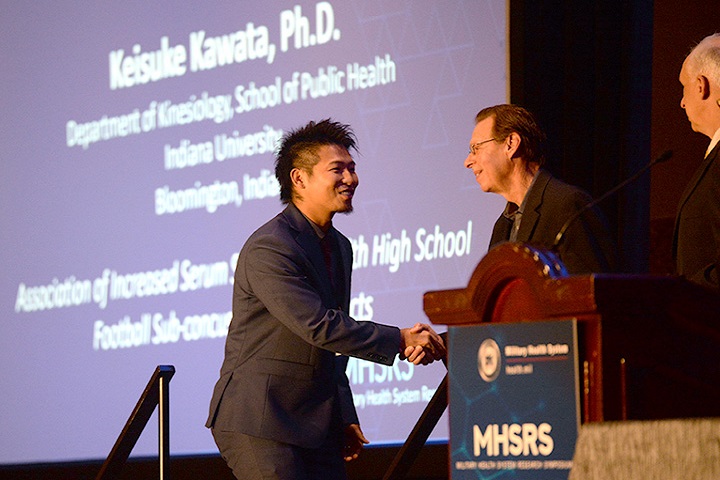
Three take top honors in highly competitive field
Beyond the Golden Hour to the Platinum Ten Minutes
Article
8/22/2018
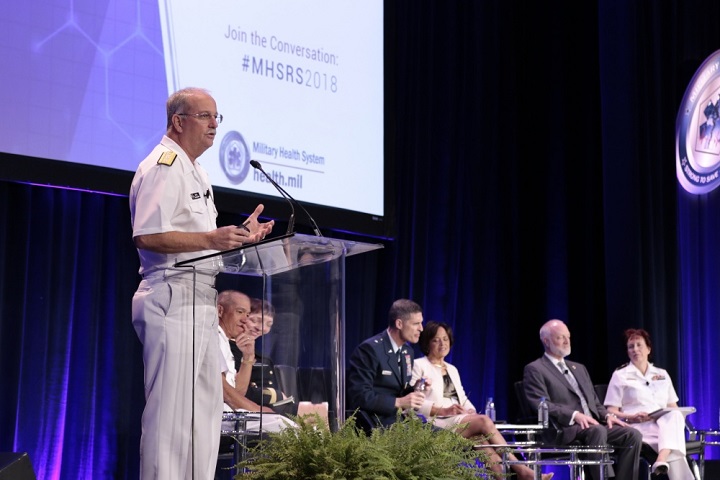
The next fight is going to be very different from past conflicts
MHSRS 2018 Kyle Brandenberger
Video
8/22/2018

MHSRS attendees were asked about their impressions and thoughts on the symposium.
MHSRS 2018 MAJ Steven Adamson
Video
8/22/2018

MHSRS attendees were asked about their impressions and thoughts on the symposium.
MHSRS 2018 CPL Michelle Ott
Video
8/21/2018

MHSRS attendees were asked about their impressions and thoughts on the symposium.
MHSRS 2018 Dr. Rauch
Video
8/21/2018

MHSRS attendees were asked about their impressions and thoughts on the symposium.
Awards honor distinguished service, individual and team research
Article
8/21/2018
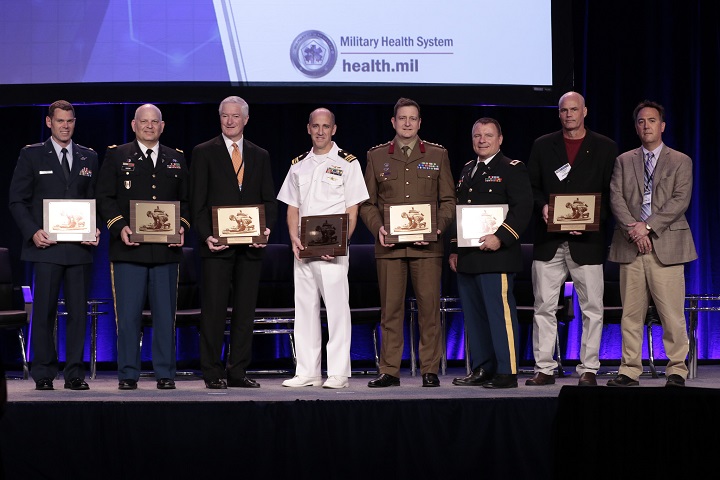
Three people, four teams recognized at symposium
Premier scientific symposium showcases medical research and development
Article
8/20/2018
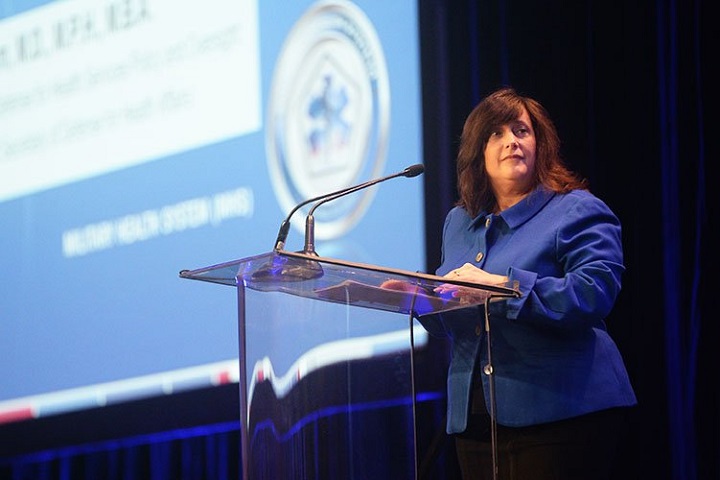
Researchers will present findings at Military Health System Research Symposium
Article
8/15/2018
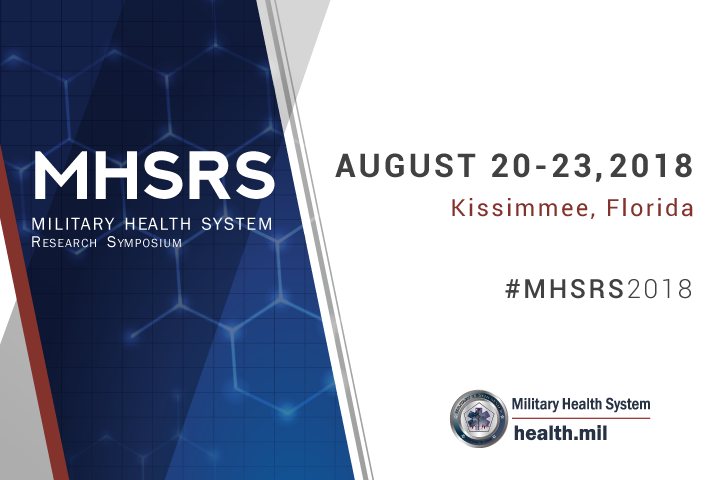
As the DoD’s premier scientific meeting, MHSRS helps to facilitate the exchange of information between almost 3,000 attendees
Medical research and development take center stage at symposium
Article
8/15/2018

Premier scientific meeting to draw 3,000 attendees





















.png)









No hay comentarios:
Publicar un comentario